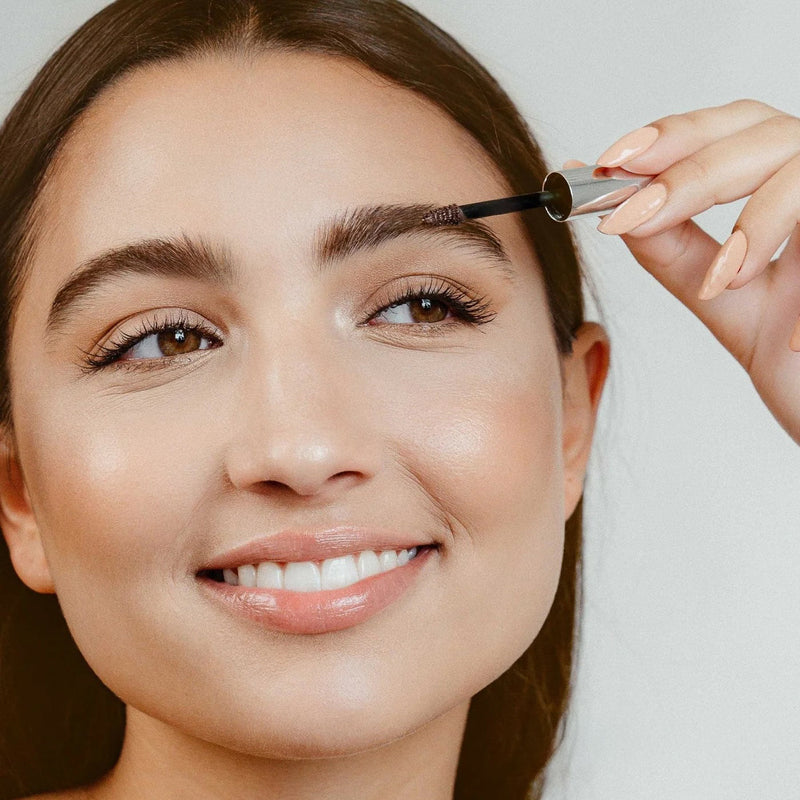Whether you're up late binging the latest nail-biting streaming obsession, because ... Pedro, or you're a new parent woken every forty minutes by the angelic screeching from your tiny human, we don't always get the sleep we want. But an increasing number of dermatologists suggest sleep may be the closest thing there is to a fountain of youth.
Sleep Your Way to Glowing Skin: What Happens Overnight
Quality sleep is more than just rest, it’s a vital time when your skin undergoes essential repair and rejuvenation processes.
What Does Sleep Deprivation Look Like?
Without the reparative benefits of sleep, skin begins to appear droopy. Red, swollen eyes, hanging eyelids, dark circles under the eyes, paler sallow skin, more defined fine lines - these are just a few of the physical manifestations of lack of sleep. Short-changing sleep can compromise nearly every major body system, from the brain to the heart to the immune system, but just the skin benefits of good sleep alone are enough to make us strive for Olympic zzz's. Below, we'll answer the FAQs about the sleep-skin connection so you can wake up with some serious glow.
Q: How Does Sleep Help My Skin?
A: A good night's sleep can improve the appearance and quality of your skin in several ways. First, getting enough rest helps keep stress levels down by regulating the body's natural production of cortisol, which can lead to inflammation, exacerbating skin conditions like acne and rosacea. On top of that, your skin cells have time to repair damage while you sleep (in adults, the skin cells that make up the epidermis regenerate approximately every 28 days), leading to a refreshed and glowing complexion when you wake. Another bonus: during sleep, we see an increase in blood flow to the skin, which helps reduce inflammation and promote a healthy glow. This blood flow boost allows your body to produce collagen, the holy grail protein for plump, glowing skin.
Q: How Much Sleep Do I Need To Maintain Healthy Skin?
A: What's the magic number? According to the National Sleep Foundation, seven to nine hours of sleep per night for adults 18+. (Shoot for the stars, aim for the moon)
Q: Does A Nap Count?
A: While it's not enough time for your body to go into repair mode and produce cells to boost collagen production, napping still counts towards healthy skin! Napping helps reduce cortisol levels - a stress hormone that can accelerate skin aging - resulting in better hydration, improved skin elasticity, and reduced inflammation, and is undoubtedly beneficial to those who do not get enough sleep at night. Not a napper? Meditation is also linked to cellular health.
Q: What Skincare Works Best While I Sleep?
A: Nighttime is the right time to apply moisturizing and retinol skin care products, as the increased blood flow helps those ingredients work more efficiently while assisting the skin’s natural regeneration cycle. #WokeUpLikeThis-worthy skin is a clean nighttime skincare routine away. Think retinol serums, overnight masks, and nourishing night creams. It's also a great time to put your exfoliating acids to work.
Q: Which Sleeping Position Is Best For My Skin?
A: Dermatologists suggest the supine position, sleeping on your back with your head slightly elevated, is the skin-friendliest position for prolonging youthful, bouncy skin, because... gravity. It prevents skin from creasing and folding into your pillow. This is excellent news if you're lucky to be a back sleeper. However, if you're not one of the chosen few, try investing in a body pillow to prevent rolling onto your face and stomach.
Q: How Can I Sleep Better At Night Naturally?
- Stick to a consistent sleep schedule, even on weekends.
- Create a relaxing bedtime routine, such as taking a warm bath or reading a book, and keep it consistent.
- Improve sleep hygiene by making your bedroom conducive to sleep with a comfortable mattress, pillows, temperature, and lighting.
- Avoid caffeine, alcohol, and large meals before bedtime. (We like the 10, 3, 2, 1 rule for sleep: 10 hours before bed: no more caffeine. 3 hours before bed: no more food or alcohol. 2 hours before bed: no more work. 1 hour before bed: no more screen time - blue light emitted by electronic devices is known to disrupt sleep.
- Exercise regularly, but avoid intense workouts before bedtime.
- Manage stress with relaxation techniques such as deep breathing or meditation.
Our Takeaway: The Sleep-Skin Connection - Skipping Sleep Sabotages Your Glow
What promotes skin cell renewal, reduces inflammation, and increases collagen production, and ... is FREE? You guessed it. The connection between adverse skin conditions and insufficient sleep is backed by science. Sleep is not just a passive state but an active state on the molecular level. Research has shown that sleep-deprived people have more visible fine lines, uneven skin tone, and dark circles under their eyes. So while it may be tempting to sacrifice sleep to get more done, your skin will thank you for prioritizing sleep. (Until then, fake it 'til you make it with a cushiony eye cream and a full-coverage natural concealer.) Remote down, Sleeping Beauty, it's time for bed.
Nighty night,
GK
All copy found on The Green Kiss website is written for informational purposes only and is not a substitute for professional medical advice.






